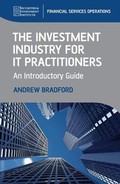Appendix 2
Summary of Contractual Documents
This appendix summarises the contractual documents that are likely to be presented to a firm that is considering any or all of the following:
- Purchasing a packaged application
- Outsourcing a software development
- Outsourcing a business process.
In particular, this summary describes any limitations that vendors usually apply to such documents that may impact the level of service they provide, or the cost of the services.
Table A2.1 Summary of contractual documents
| Document name | Type of purchase where this document is used | Brief description of document |
| Software licence | Software package | The document grants the customer the right to use the software package for a given period of time, in return for the payment of a licence fee. Typically, this document may have restrictions about the use of the package. For example: • The user may only use this product in a given location • The licence may expire after a given number of years • The licence may restrict the number of transactions to be processed in a given day, week or month |
| Software maintenance contract | Software package | The document obliges the vendor to provide support of the package, in return for payment of a maintenance fee. Typically, this document may have limitations about the provision of support. For example: • Support may be restricted to telephone support and not include site visits which are charged separately • Support may either be available 24/7, or it may be restricted to normal business hours/days in the country from where it is provided • Support may be restricted to just problem solving, or it might entitle the user to new releases/upgrades of the package |
| Development contract | Outsourced development projects/software package | This document commits the vendor to develop software specified by the customer, in return for payment of development fees. Development fees may be charged on a “time and materials” basis – e.g. $1000 per day, or may be on a fixed price basis – e.g. $250 000 for the complete development. When development fees are charged on a fixed price basis, the scope of the development needs to be agreed at the start, and the contract will cater for variations. Variations are then dealt with by work orders or task orders |
| Service contract | Outsourced business process | This document describes the work that is to be outsourced to the vendor in return for payment of a services fee by the customer. Typically, this document may have restrictions about the use of the service. For example: • The user may only use this service in a given location • The service usually refers to trading volumes. There may be a minimum charge for the first, say, 1000 transactions per day/week/month, and extra transactions will be charged for on a sliding scale |
| Service level agreement | Outsourced business process | A service level agreement (SLA) is that part of a service contract in which a certain level of service is agreed upon. Level of service in this context refers to both the quality of the service and the time deadlines for performing the service. It may also specify penalties to be paid by either party if the level of service provided fails to reach the minimum standards in the agreement for an extended period of time |
| Work order | Outsourced development projects/outsourced business process/software package | In the case of a package, a work order may be used instead of a development contract. In the case of an outsourced development project, work orders are used mainly to vary the scope of the previously agreed development. In the case of an outsourced business process, it is used to request the vendor to carry out work that is outside the scope of the original service contract. It obliges the vendor to carry out the specified work in return for the agreed fee. |
| Task order | Outsourced development projects/outsourced business process/software package | An alternative to a work order |
| Change request | Outsourced development projects/outsourced business process/software package | An alternative to a work order |
| Non-disclosure agreement | All | An NDA creates a confidential relationship between the parties to protect any type of trade secret. The RFP that you issue may well contain background information about your current processes that you wish to protect, and equally the vendor will, in its responses, pass confidential information to your firm |
